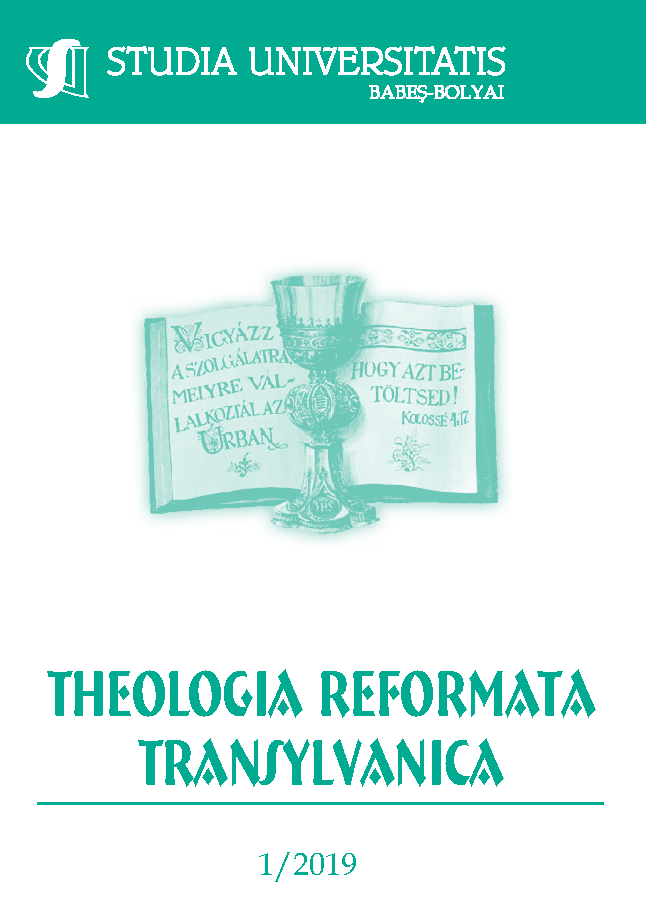Elcserélt narratívák – Gondolatok a szégyenről a Gen 1–3 alapján –
DOI:
https://doi.org/10.24193/subbtref.64.1.03Keywords:
shame, narrative, boundaries, Trinity, crossAbstract
Interchanged Narratives – Thoughts on the Concept of Shame based on Gen 1–3.
As humans, we can narrate ourselves in many ways. Our narratives and narrative identities are complex, they are developed, formed, and influenced by many factors. Shame is one of the determinants of the development of our narratives, which indicates the limitations and boundaries of the individual, keeping the individual with-in these and ultimately, as a positive effect, awakening a desire for God. However, shame can become a determinant of the narrative: changing the questions of “what is happening” to those of “whose fault is it” traps us and keeps us captive. Based on Gen 1–3, we can understand what our creational basic narrative could be, which is briefly that we are good creatures of God in a world created good, we have limited freedom, but great dignity, and a task as well. For the created man and woman, there was no shame; it appeared with sin; and from the details of the story of the temptation and the Fall, we can understand much of the mechanisms of changing the original narrative into the shame-narrative, and the functioning of the reactions given to it. One’s self-reflection gets alienated from revelation, then splits, falls into pieces, and the prevailing shame forces us to hide and to create obscure narratives. The use of the concept of shame in the Old Testament is sometimes linked to the moment of mourning, from which it can be understood how the public act, the manifest and lived, limited, fragmented, and weak state can resolve the self-destructive state maintained by hiding. True resolution can be brought about by the birth of a new narrative arising from the Trinity: in the cross, through Christ taking common cause with us in the deepest loneliness of shame and pain, God can become our Father. The Father sees us as children, in whom God is delighted through Christ. And the Holy Spirit can give light and strength in this, praying in a way we are unable to do, so that the statement “I am a Christian” may become a narrative mode, taking on the duality of the “already” and “not yet” state.
References
BALLABAN, Steven: The Use of Traumatic Biblical Narratives in Spiritual Recovery from Trauma: Theory and Case Study, in: Journal of Pastoral Care&Counceling, 68. évf., 2014, 4. szám. 1–11.
BÁNKI György: A legnagyszerűbb könyv a nárcizmusról, AbOvo Kiadó, 2016.
BIDDLE, Mark E.: Sin, Shame and Self-Esteem, in: Review and Expositor, 2006, 103. szám. 359–370.
BLOCHER, Henri: Kezdetben, Harmat Kiadó, Budapest, 1998.
BONHOEFFER, Dietrich: Etika, Kolozsvár, Exit Kiadó, 2015.
BRADSHAW, John: A mérgező szégyen gyógyítása, Casparus Kiadó, Budapest, 2015.
DELITZSCH, Franz: A New Commentary on Genesis, Edinburgh, 1888.
FROMM, Erich: A szeretet művészete, Háttér Kiadó, Budapest, 2012.
HENSLEY, Adam D.: Redressing the Serpent’s Cunning. A Closer Look at Genesis 3:1, in: Logia, 27. évf., 2012, 3. szám. 41–44.
KÁLVIN János: A keresztyén vallás rendszere I., Budapest, Kálvin Kiadó, 1995.
KORZUN, James E.: The Dynamics of Shame in Spiritual Direction, in: Sewanee Theological Review, 46. évf., 2002, 1. szám. 69–76.
LAIRD, Harris – WALTKE, Bruce K. – ARCHER JR., Gleason L.: Theological Wordbook of the Old Testament, Moody Publishers, 2003.
LYNCH, Matthew J.: Neglected Physical Dimensions of „Shame” Terminology in the Hebrew Biblie, in: Biblica, 2010, 91. szám. 499–517.
RICH, Curtis R.: The Transformation of the Heart: An Object Relations Perspective, in: Journal of Pastoral Care & Counseling, 69. évf., 2015, 3. szám. 140–150.
SALER, Robert: The Transformation of Reason in Genesis 2-3: Two Options for Theological Interpretation, in: Currents in Theology and Mission, 36. évf., 2009, 4. szám. 275–286.
SCHEIB, Karen D.: Pastoral Care: Telling the Stories of Our Lives, Nashville, Abingdon Press, 2016. 8–15.
SIBA Balázs: Isten és élettörténet. A narratív identitással kapcsolatos kutatási eredmények gyakorlati teológiai jelentősége, Budapest, 2008. https://docplayer.hu/3348425-Isten-es-elettortenet.html.
SMITH, Mark S.: Before Human Sin and Evil: Desire and Fear in the Garden of God, in: The Catholic Biblical Quarterly, 2018, 80. szám. 215–230.
SPHAR, Asa: A Theology of Shame as Revealed in the Creation Story, The Theological Educator, 1997, 55. szám. 64–74
TILLICH, Paul: Rendszeres teológia, Osiris Kiadó, Budapest, 2002.
WU, Daniel Y.: Honor, Shame and Guilt: Social-scientific Approaches tot he Book of Ezekiel, Winona Lake, Indiana, 2016.
WU, Jackson: Have Theologians No Sense of Shame? How the Biblical Reconciles Objective and Subjective Shame, in: Themelios, 43. évf., 2018, 2. szám. 205–219.
Downloads
Published
How to Cite
Issue
Section
License
Copyright (c) 2019 Studia Universitatis Babeș-Bolyai Theologia Reformata Transylvanica

This work is licensed under a Creative Commons Attribution-NonCommercial-NoDerivatives 4.0 International License.






